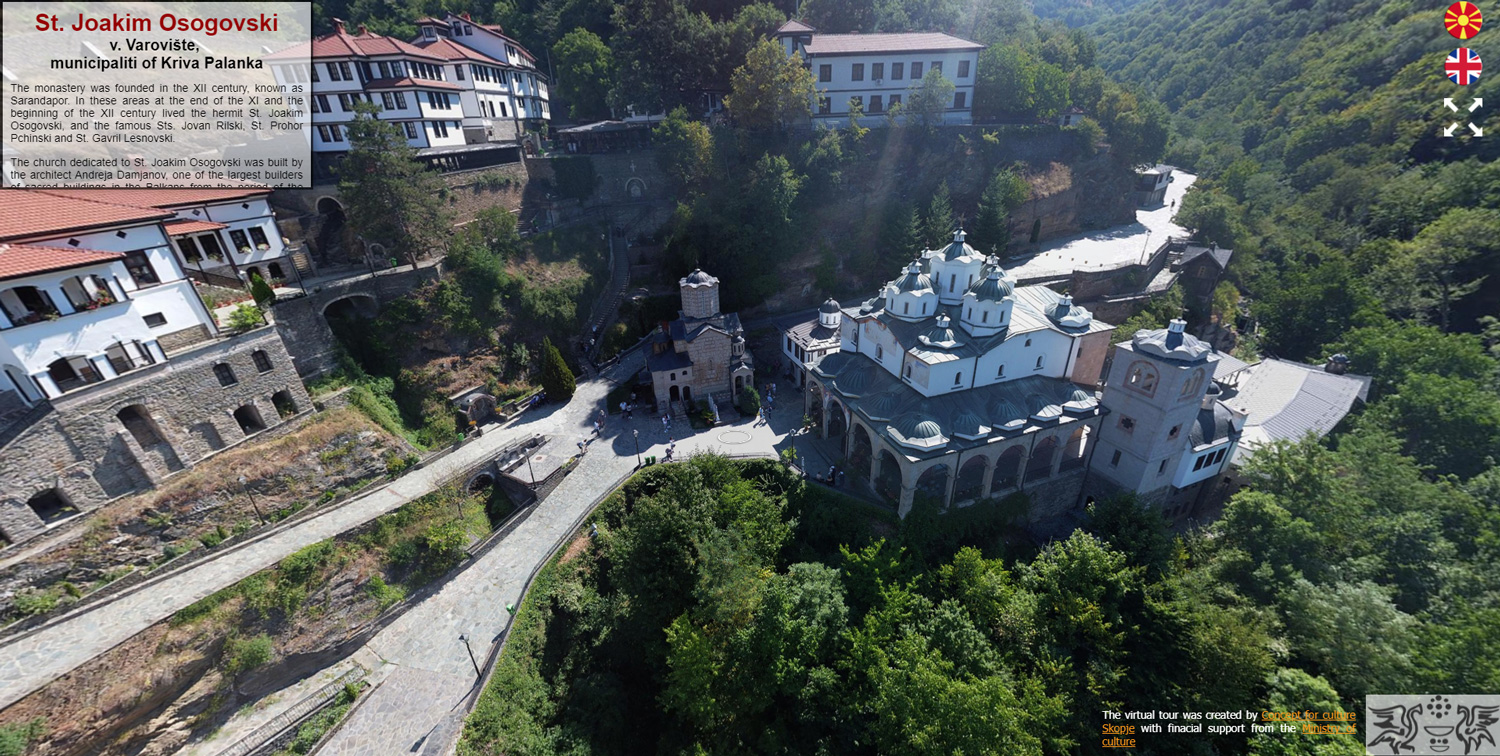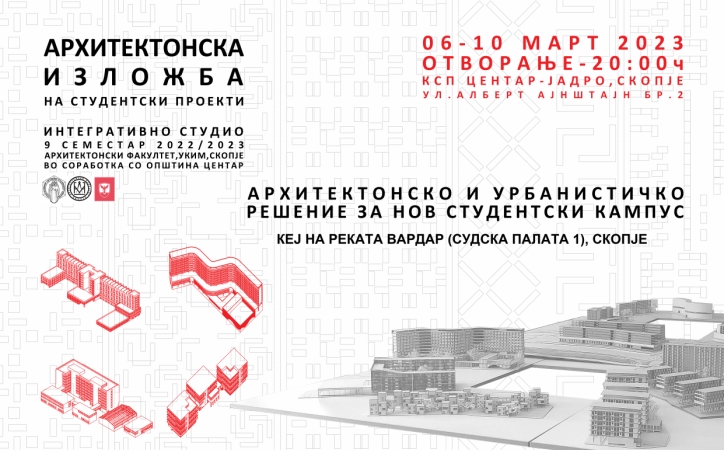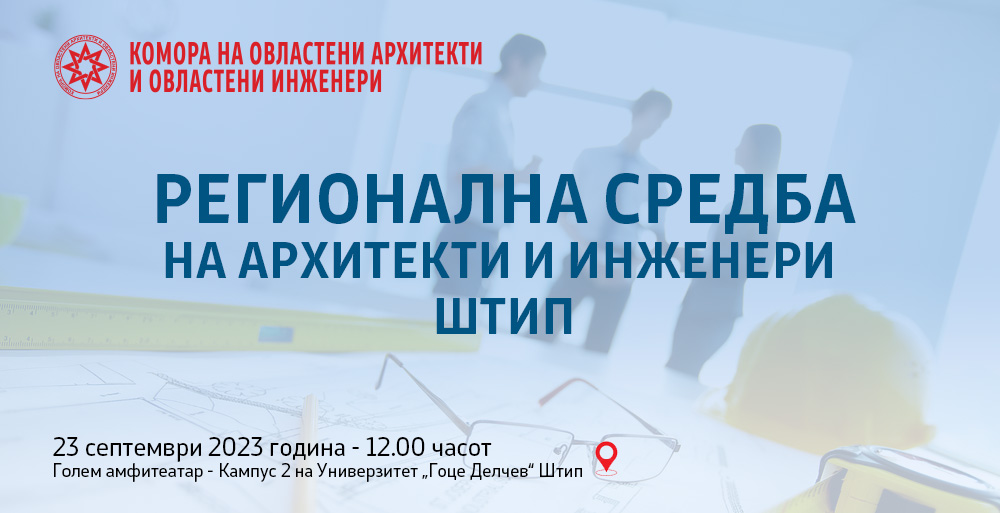“Challenging the five-stars” / 11та меѓународна летна школа во ОХРИД / UACS
02.05.2024 • Информации
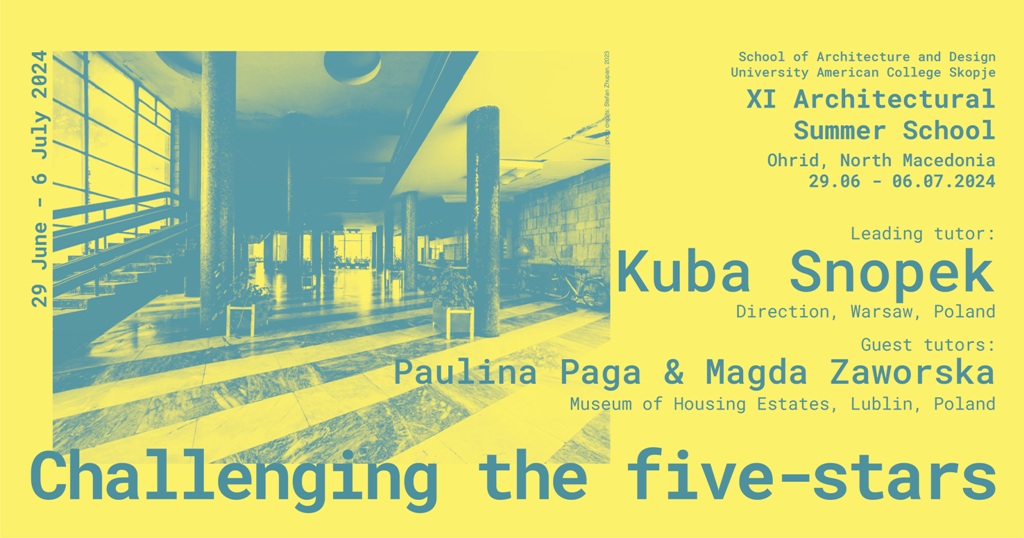
Факултетот за Архитектура и Дизајн при Универзитет Американ Колеџ Скопје, со задоволство ја најавува 11-та Летна Школа за Архитектура во Охрид под наслов “Challenging the five-stars”, под менторство на Куба Снопек од Варшава!
MK
Развојот на социјалистичкиот туризам вклучуваше создавање на архитектонски експресивни згради кои ги комбинираа општественото однесување, политичките идеологии и почитта кој природниот пејзаж, одразувајќи ја посветеноста на општеството за заштита на животната средина и културата, притоа прикажувајќи можности за експериментирање во дизајнот.
Денеска имаме проблем со модернистичките хотели. Изградени пред половина век, тие не го обезбедуваат стандардот на кој сме навикнати денес. Од Ташкент до Краков, до Охрид, архитектите ги поместуваат границите на овие префабрикувани објекти за да постават поголеми кревети, повеќе базени и ефикасна климатизација. Но, овие напори се залудни. Тие антички хотели, обновени до непрепознатливост, често ја губат душата.
Што ако архитектурата е погрешна алатка за спасување на овие хотели? Што ако наместо тоа, повторно замислиме како може да изгледа слободното време? Што ако ја предизвикаме удобноста со пет ѕвезди, барајќи го изворот на среќа на друго место?
Оваа година учениците на Летната Школа за Архитектура во Охрид ќе го реевалуираат хотелот Палас, македонскиот архитектонски скапоцен камен во распаѓање, локалитет кој е наведен како национално архитектонско наследство. Школата ќе има за цел да предложи алтернативна стратегија за враќање на Палас во живот: онаа која ги препознава нематеријалните добра на хотелот и го предизвикува универзалниот стандард за градење хотели, отстапувајќи од вообичаените архитектонски пристапи и фокусирајќи се на подобрување на искуството на посетителите.
EN
Socialist tourism development involved the creation of architecturally expressive buildings that blended social behaviors, political ideologies, and respect for the natural landscape, reflecting the society’s commitment to environmental and cultural protection while showcasing opportunities for experimentation in design.
Today we have a problem with modernist hotels. Built half a century ago, they don’t provide the standard we’re used to today. From Toshkent to Krakow, to Ohrid, architects are pushing the boundaries of these prefab structures to place bigger beds, more pools, and efficient air conditioning. But these efforts are in vain. Those ancient hotels, rebuilt beyond recognition, often lose their soul.
What if architecture is the wrong tool to save these hotels? What if instead, we reimagine how leisure might look like? What if we challenge the five-start comfort, searching for the sources of happiness elsewhere?
This year, the students of Ohrid Summer School will reevaluate the Hotel Palas, Macedonia’s decaying architectural gem, site listed as a national architectural heritage. The school will aim to propose an alternative strategy for bringing Palas back to life: one that harnesses the hotel’s intangibles and challenges the universal standard of building hotels, diverging from the usual architectural approaches and focus on enhancing the visitor experience.
Hotel Palas
Kuba Snopek – is a Polish urban designer, author of public spaces, educational programs, and books on art, architecture, and heritage. He researches the urban realm, designs urban interventions, and writes about cities. He is a Fulbright scholar, a graduate of Real Estate Development and Design at UC Berkeley and Preservation at the Strelka Institute, and a former Program Director at the Kharkiv School of Architecture. He is the founder of Direction, a strategic consultancy firm designing experiences, destinations, and brands. The project “Stage”, – a collectively designed, crowdsourced and crowdfunded public space, has received the Special Mention in the 2018 European Prize for Urban Public Space, where he participated as project initiator and director. His project “Real Estate Art” – – proposes a new model of investing in art: one which will prevent the displacement of artists, help the developers reframe their relationship with art, and increase the value of their property in the long-term. In his book “Belyaevo Forever” he talks about the preservation of the immaterial heritage of the past, a book published in English, Polish and Russian. He is also a co-author of the research “Day-VII Architecture”, – which illuminates the phenomenon of the construction of churches in communist Poland.
WHO CAN APPLY? Students who’ve finished their fourth semester of architecture studies are welcome to apply. We also encourage motivated individuals from other disciplines, like designers, artists, urban ethnographers to join us.
APPLICATION PROCESS To apply, please fill out the APPLICATION FORM – https://forms.gle/VGEM4X6Bg198h8yT7 – and include a short essay of one paragraph (500 words) explaining why you want to participate in this summer school. Additionally, submit your CV and a specific selection of your portfolio (maximum 2 pages) in PDF format. The deadline for applications is May 31, 2024. Selected participants will be notified via email by June 5, 2024.
REGISTRATION FEE The participation fee for the Summer School is 200 euros per participant. This fee covers material equipment, accommodation, meals, and transportation from Skopje to Ohrid and back.
CONTACT For further questions feel free to contact us at: ohridss@uacs.edu.mk.
Охрид / Ohrid Summer school is organized by the School of Architecture and Design, University American College Skopje with support of the Ministry of Culture of the Republic of North Macedonia; Embassy of the Republic of Poland in the Republic of North Macedonia; and Municipality of Ohrid, in partnership with Museum of Housing Estates, Lublin; Direction, Warsaw; NI Institute for protection of monuments of culture and museum – Ohrid; architectural studio Proxy, Skopje; and the architectural collective Arhrid, Ohrid.
Instagram: https://www.instagram.com/ohridss/
Facebook: https://www.facebook.com/ohridss
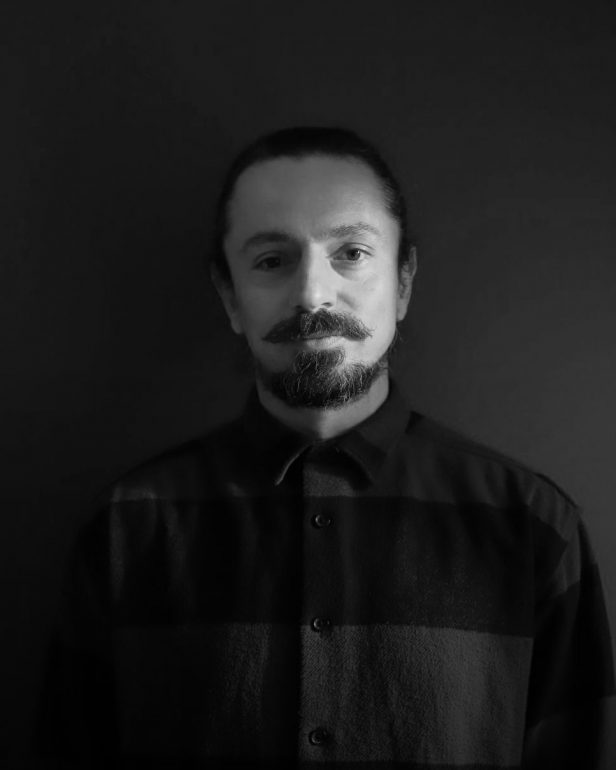
Автор на статија: Filip Koneski



